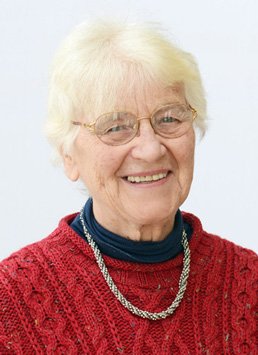Society for the Study of Women Philosophers, Inc.
a non-profit, tax-exempt educational charity 501(c)3 Internal Revenue Code
Cleobulina of Rhodes
c. 550 BCE
Rhetoric & Logic
|
Kate Lindemann's Women Philosophers pages |
 |
Remember!! Your purchase of books by clicking on Abe Books or Amazon links through this site earns us a small commission that is used to provide travel scholarships. |
Cleobulina of Rhodes was the daughter of Cleobulus, a man included in Diogenes Laertius, The Lives And Opinions of Eminent Philosophers. Diogenes says::
"CLEOBULUS was a native of Lindus, and the son of Evagoras; but according to Duris he was a Carian; others again trace his family back to Hercules. He is reported to have been eminent for personal strength and beauty, and to have studied philosophy in Egypt; he had a daughter named Cleobulina, who used to compose enigmas in hexameter verse, and she is mentioned by Cratinus in his play of the same name, except that the title is written in the plural number. They say also that he restored the temple of Minerva which had been built by Danaus. "
Source: The Lives and Opinions of Eminent Philosophers
Cleobulina of Rhodes became well known in her own right as a dispenser of wisdom couched in riddles.
- Aristotle, not known for his advocacy for women scholars, quotes Cleobulina of Rhodes in both his Poetics and the Rhetoric III, ii, xii. This last source is in French. Contemporary editions of the Rhetoric and the Poetics often omit sections that mention Cleobulina.
- Juan Luis Vives, 1492 - 1540, includes Cleobulina of Rhodes in his book, The Instruction of a Christian Woman. He states: "CLEOBULA (Cleobulina). Daughter of Cleobulus, she advocated education for women and composed verse enigmas."
- Bathsua Makin lists Celebulina of Rhodes among the educated women of Ancient Greece in her work, An Essay to Revive the Antient Education of Gentlewomen published in 1673.
- Professor Daniel Levine mentions Cleobulina of Rhodes and her father and some of their riddles. Scroll down a few lines for mention of Cleobulina of Rhodes. http://classicpersuasion.org/pw/diogenes/dlcleobulus.htm
Cleobulina of Rhodes is often included in studies of those who use riddles to embody wisdom.
The Bryn Mawr Classical Review 1999.05.23 reviewed Stefano Jedrkiewicz's, Il convitato sullo sgabello: Plutarco, Esopo ed i Sette Savi. Filologia e Critica, 80. Pisa/Rome: Istituti editoriali e poligrafici internazionali, 1997. That review included this section related to Jedrkiewicz's comments about Cleobulina of Rhodes:
"J.'s remarks about the riddle are the most interesting, and represent the book's most valuable contribution to the general subject of wit and wisdom literature. Riddles are a problematic element in Plutarch's text because they are directly associated with a character named Cleobulina (whom Plutarch designates as "Eumetis", saying that she is only called Cleobulina after her father). Cleobulina is an expert in riddles, and we first meet her before the banquet begins, as she is shown suggestively (and silently) parting Anacharsis's hair. Although Cleobulina is present for most of the banquet, she does not speak; instead, when Cleodorus makes dismissive comments about riddles as a genre, it is Aesop who defends Cleobulina and repeats one of the riddles which, he says, Cleobulina had posed for them before the banquet. The silent Cleobulina is accompanied at the banquet by the equally silent Melissa, Periander's wife, an interpreter of dreams who herself defined the occasion for the banquet (it was on the basis of her dreams that Periander was persuaded to renew his sacrifices to Aphrodite after a disastrous love affair with his own mother!). The subordinate status of these women would seem to constitute a true dilemma in the hierarchy of knowledge displayed at the banquet. While J. argues that Plutarch presents the sages, together with Aesop, as a perfectly integrated continuum of the
serious and the comic, that continuum would already seem to be disrupted by Aesop being seated on a stool; even more importantly, these women are representatives of wisdom traditions who are even less involved in the banquet scene, and who do not participate in the banquet's spoken dialogue. Yet nevertheless J. maintains that Cleobulina's riddles should be recognized as one of the central techniques of "playful wisdom," and he considers both Cleobulina and Melissa to be exemplary exponents of "playful wisdom," despite their marginalization in Plutarch's text [65-66]. This tension within Plutarch's text would itself seem to constitute an excellent topic for discussion, but because J. predicates his discussion on the seamless perfection of the banquet's performance, he does not have much to say about this discrepancy."
Click to read English translations of riddles attributed to Cleobulina of Rhodes.
This page was updated 10 January, 2015.
Cleobulina of Rhodes is one of more than 40 women philosophers featured in:
Busted!! A Pictorial History of Women Philosophers DVD Volume 1.
Society for the Study of Women Philosophers